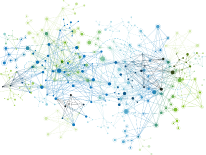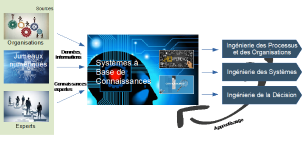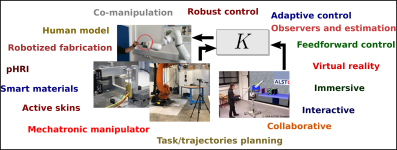Systems Scientific Department
The main activities of the department are related to complex and dynamic systems. A system is a set of interacting components whose individual behaviors are different from the behavior of the whole system. The developments aim at establishing models to understand, predict and act on the behavior of these systems. The department relies on five research groups oriented around the sciences of automation, robotics, mechatronics, electronics and electrical conversion systems, artificial intelligence and industrial engineering.

e-ACE2 - Efficiency of Electrical Energy Conversion Systems
Obtain an electrical energy conversion chain, from its design, its management and its diagnosis, to its test.
Research topics:
- Material and processes: Power electronics’ devices, compact, efficient, innovative and capable of working in highly constrained environments.
- Multiphysic and wide frequency model:
- Unified, broadband, multi-physics models for simulation, control implementation, and estimation for predicting device damage status.
- Models of electrical energy conversion chains, electromechanical conversion chains, or objects of power electronics.
- Applied automatic:
- Observation, control and modulation scheme for efficiency gain, or monitoring of aging indicators or observation of variables for control.
- Application to electrical energy conversion chains, electromechanical conversion chains and power electronics’ devices.
Key words : Electrical Engineering Power Electronics, Integration, Electromagnetic Interactions, Multi-physics Modeling, Electromechanical Conversion.
Applied Automatic: Control, Pulse Width Modulation drive, Observation, Diagnosis
Scientific and societal challenges targeted:
Modeling, piloting and implementation of optimized devices: Efficiency; Compactness; Operation under heavy constraints. Targeted societal challenges: Energy Efficiency; Energy Transition; More Electric Mobility.
Members : BAFFREAU Stéphane, KOUKI Mohamed, TRAJIN Baptiste, VIDAL Paul-Etienne, VINÉ Guillaume
ICE - Knowledge and Experience Engineering for the improvement of processes, systems and organisations
The KEE research group (Knowledge and Experience Engineering for the improvement of processes, systems and organisations) develops tools, models and methods to model, capitalize and reuse experiences and knowledge to design, configure, reuse, collaborate, manage, analyze and optimize systems, processes and organizations. Using a knowledge engineering approach, knowledge-based systems and their associated learning mechanisms are studied in order to help processes and organizations engineering, systems engineering or decision engineering. These tools combine expert knowledge, experiences and data/information from various sources such as organizations, digital twins or experts.
Members: BELER Cedrick, COUDERT Thierry, GENESTE Laurent, KAMSU-FOGUEM Bernard
MAVRICS - Mechatronics, Automatic control, Virtual Reality and Robotics for the InteraCtion of Systems
The MAVRICS research group studies and develops methodological and innovative technological tools for the interaction of robotic systems with their  environment (human people, manipulated objects, tools and pieces/parts, perirobotics). As far as methodological tools are concerned, MAVRICS proposes and/or adapts control methods (feedforward/feedback architectures, estimation) for the robots in interaction as well as task and motion planning in a collaborative, interactive and immersive approach, or co-design of hardware/software architectures for embedded perception modules for robots. As far as technological tools are concerned, the group develops innovative mechatronic systems based on smart and active materials devoted to increase the interaction capabilities of the robots.
environment (human people, manipulated objects, tools and pieces/parts, perirobotics). As far as methodological tools are concerned, MAVRICS proposes and/or adapts control methods (feedforward/feedback architectures, estimation) for the robots in interaction as well as task and motion planning in a collaborative, interactive and immersive approach, or co-design of hardware/software architectures for embedded perception modules for robots. As far as technological tools are concerned, the group develops innovative mechatronic systems based on smart and active materials devoted to increase the interaction capabilities of the robots.
Members : BENOUSSAAD Mourad, FILLATREAU Philippe, FOURQUET Jean-Yves, MAUZÉ Benjamin, NOUREDDINE Farid, RAKOTONDRABE Manitrarivo Micky
PICS - Planning, Interoperability, and Coordination for Systems’ Dynamics
PICS acts on the world - by mobilizing knowledge to pro-act (plan), re-act, and operate the execution of one or more agents (cooperate, inter-operate) = organize and revise activities over time according to the dynamics of the system.
We are interested in digitized dynamic ecosystems. We consider that a digitized ecosystem can be defined as a distributed, adaptive and open physical socio-cyber system, endowed with dynamic properties of self-organization, evolutivity and sustainability, inspired by natural ecosystems through the use of a set of interconnected computing resources that can function as a unit.
Members : ARCHIMEDE Bernard, KARRAY Mohamed-Hedi, LOUGE Thierry, VIDAL Thierry, NAMAKIARAGHI Sina
PRISM - Prognostics & Risks Management
Within the framework of the control of the systems life cycle, the PRiSM (Prognosis & Risk Management) Research Group focuses more specifically on issues related to the characterization and control of their dysfunctional behavior; this suggests the need to monitor, to collect data, to early detect anomalies, to diagnose failures, to predict the useful life of a material or the evolution of a system's behavior. The main challenge of the work carried out is the analysis of vulnerability and the search for resilience. The proposed solutions aim to offer decision support tools to decision makers to better take into account the hazards that can hinder the normal or natural functioning of a system in its environment. To achieve this, a wide range of Industrial Engineering skills are mobilized: Artificial Intelligence models and algorithms (Machine/Deep Learning), probabilistic and stochastic models for modeling uncertainties, multi-criteria decision methods, techniques for analyzing the dynamic behavior of systems, etc...
Members : CHIRON Pascale, DESFORGES Xavier, HOUE Raymond, LETOUZEY Agnès, MARTIN Carmen, MEDJAHER Kamal, NGUYEN Thi Phuong Khanh, PERES François, TCHANGANI Ayeley











